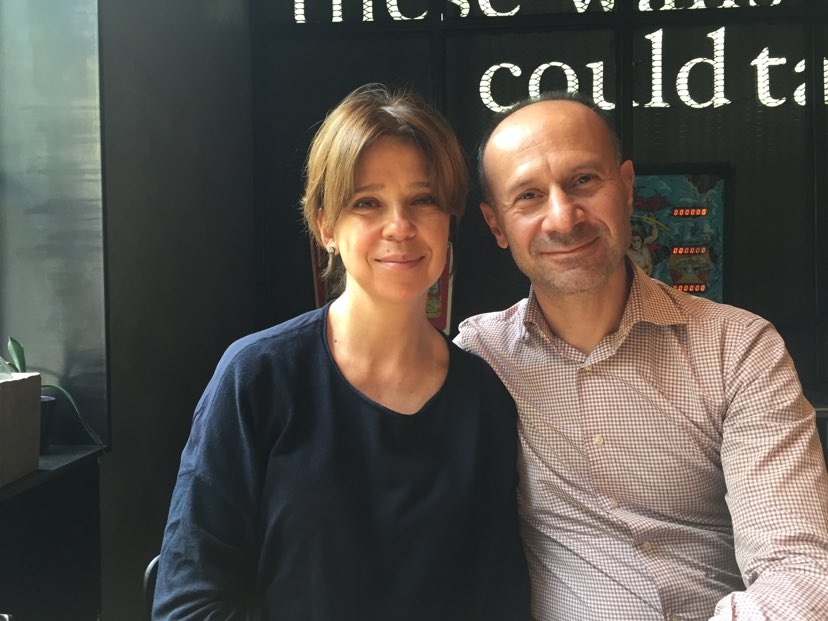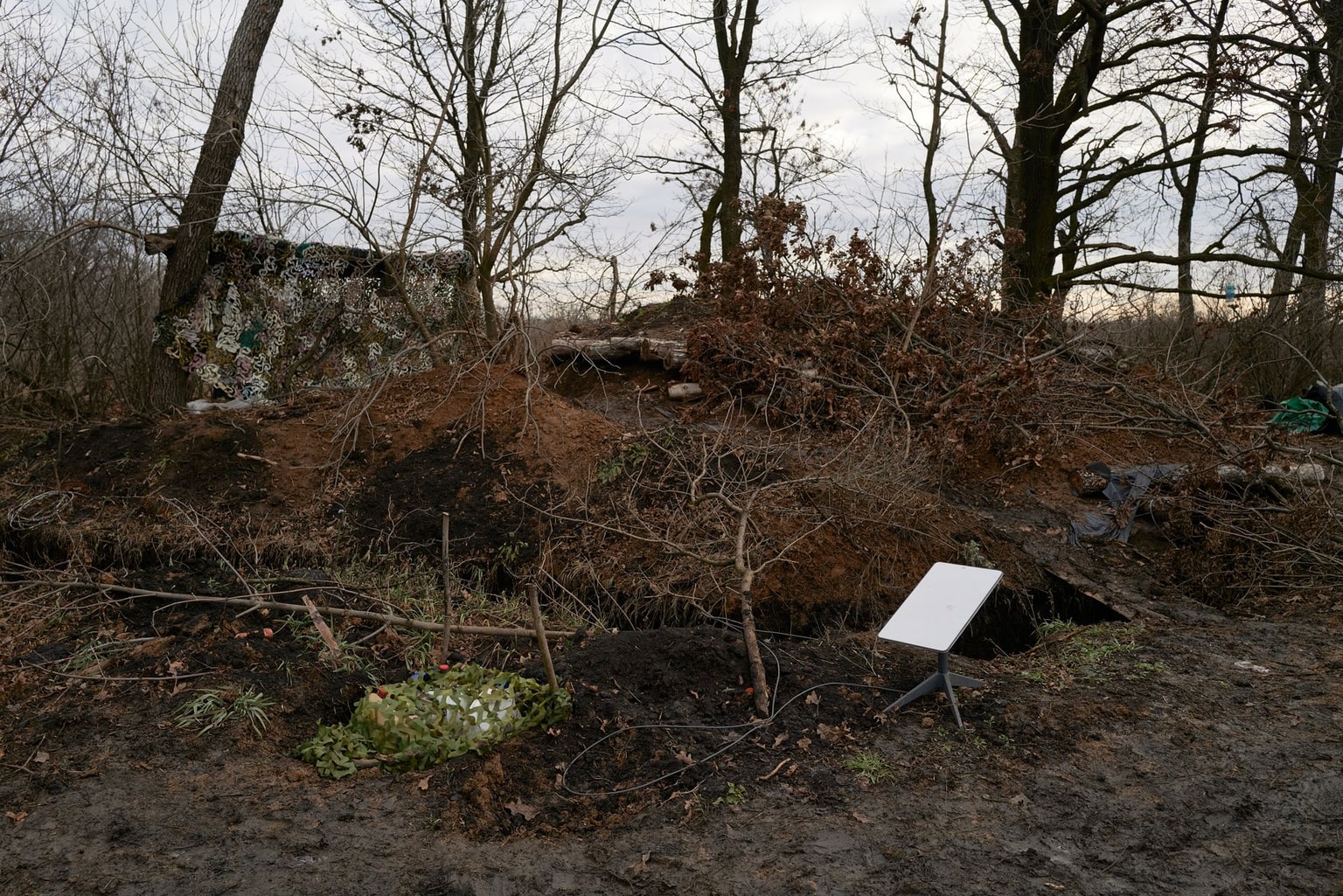Despite Russian attack threat, these foreigners stay in Ukraine

Dublin-born Paul Niland, 49, still remembers the very moment he fell in love with Kyiv 19 years ago, shortly after his arrival in the unfamiliar city.
Hours after being dropped off at his new apartment in Kyiv late at night, Niland spontaneously decided to take a walk up the hill. What he saw was a beautiful view overlooking the Dnipro River and Trukhaniv Island, and the city immediately captured his heart.
“It was just the most wonderful first day in a brand new city,” the Irish national told the Kyiv Independent.
Niland, who initially came to Ukraine as a financial adviser and since founded Ukraine’s national suicide prevention support line, recalled how he kept prolonging what was meant to be a six-month-long work visit to Kyiv. “Nineteen years later, and I'm still here,” he said with a smile.
After having witnessed Ukraine’s turbulent history unfold as he stood with hundreds of thousands of local protesters throughout the two major revolutions, “you become more personally invested” in the country, the expat said.
Now, tensions have once again escalated near the borders of Niland’s new home. A further Russian invasion threatens Ukraine, to prevent it from forging closer ties with the West.
Over 20 embassies have urged their citizens to immediately leave the country and many evacuated their staff after the White House warned on Feb. 11 that Russia could launch a massive attack against Ukraine at any moment. Russia has massed over 140,000 fully-equipped troops near Ukraine and in the Russian-occupied territories.
But Niland and many other foreigners have decided that they are here to stay.
“I'm not going anywhere because this is my home,” he said.
Remembering how he stood on the streets through months of protests during the Orange Revolution in 2004 and EuroMaidan Revolution in 2013-2014, Niland emphasized that those same people will go out to the streets and fight if Russia were to attempt an occupation of Kyiv.
“If the invaders come to my home (Kyiv), those same people will resist any Russian occupation and I will be a part of that as well,” he said.

Staying calm
Japanese national Saeko Homma-Cridelose experienced a firsthand account of war when she lived in Congo in the late 1990s.
The interior architect, currently based in Kyiv, was at a tennis court when she saw panicked people running in all directions and heard the bomb blasts.
The sudden escalation of an internal conflict in 1997 when the Alliance of Democratic Forces for the Liberation of Congo reached the capital Kinshasa, threw the city into chaos. People scattered all over the streets, and cars refused to stop.
Once she got back to her residence located on the French Embassy premises, she began helping with the rescue operation.
“If you are put in such a situation, you don’t feel fear anymore,” she told the Kyiv Independent. “You start focusing on things that you can do right now.”
Homma-Cridelose moved to Kyiv in 1998 due to her husband’s work. She described it as a particularly “interesting period” for work because of the many opportunities and the new culture emerging out of the fall of the Soviet Union.
The Japanese architect considers Ukraine her home and has decided to stay.
Looking back at her experience, she said “it’s important to stay calm and think clearly to understand what you can do right now.”

Unexpected love
Hassan Farhat from Lebanon says he never had a single thought about leaving Ukraine amid the ongoing Russian military buildup. Ukraine is his “second homeland” and he doesn’t fear what may happen in the future.
He came to the western city of Lviv back in 1988 as an aspiring medical student under a Soviet Union-era scholarship program. The future ophthalmologist later moved to Kyiv, where he attended a more specialized school.
Farhat soon got a job as an eye surgeon in a state medical institution in Kyiv and worked there until 2014. He said that he left because of corruption in the administrative body.
The 52-year-old never thought he’d live in Ukraine for so long, but he said “all my plans changed” when he met his soon-to-be wife at the clinic.
The married couple opened an ophthalmology clinic in Kyiv. “Nothing would have been possible without Natasha (his wife),” he said.
Farhat said it was difficult at first because the equipment was expensive, but the business is going well. The patients range from middle to upper class, though Farhat says he also gives discounts to those people who struggle to pay medical bills, as he believes that everyone should have access to quality medical care.
“I don’t think that you need to have the passport of this country,” he told the Kyiv Independent. “You just need to love the people in this country and support the country even through difficult times.”

Better future
Communication Consultant Peter Cribley from Liverpool came to Ukraine in 2015 because he wanted to explore the country.
He first headed to Kharkiv where he took part in an educational project organized by U.K. university graduates.
“My lack of knowledge of Ukraine was why I took the job six years ago,” the 33-year-old Brit told the Kyiv Independent.
Cribley found it important to learn more about Ukraine, especially after the historic EuroMaidan Revolution.
Once the contract was over, Cribley decided to launch his own company, offering English-language communication advice for business. Though he closed the company in December on a good note, he said the work was “relatively stable” and he wants to show more people that Ukraine is a place where you can run a successful, legitimate business.
Though concerned about the many possible scenarios of Russian aggression, Cribley believes that there is no need to get too alarmed. He sees that locals are concerned about the “anxiety-inducing situation” but nevertheless prepared, “naturally staying somewhat calm.”
Ukrainians are “very resilient” even as Russia continues to turn up the pressure, Cribley said. He believes that Ukraine is still on its path to a better future.
“I’m staying because I want to be part of that future.”











